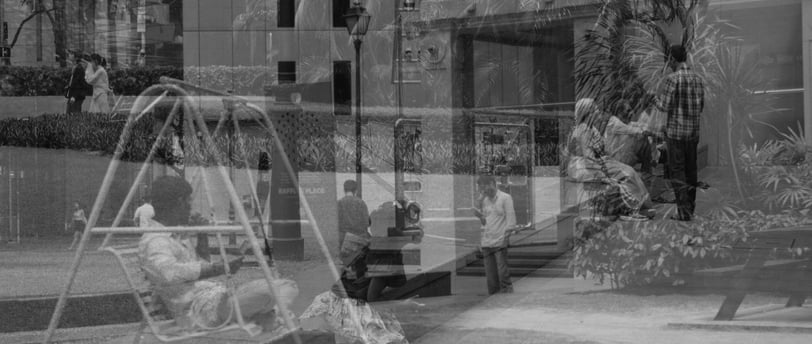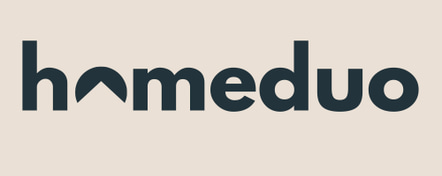Leasehold vs Freehold in Singapore: What Property Buyers Need to Know
Navigating the real estate market in Singapore requires a strong understanding of one fundamental difference — leasehold vs freehold property ownership. While both types of tenure come with their own merits and trade-offs, understanding which is the better fit for your goals—be it for own stay, legacy planning, or investment—is critical in today’s evolving market landscape.
4/19/20254 min read


Leasehold vs Freehold in Singapore: What Property Buyers Need to Know
Navigating the real estate market in Singapore requires a strong understanding of one fundamental difference — leasehold vs freehold property ownership. While both types of tenure come with their own merits and trade-offs, understanding which is the better fit for your goals—be it for own stay, legacy planning, or investment—is critical in today’s evolving market landscape.
What is Freehold Property in Singapore?
Freehold properties are titles where ownership of the property is held in perpetuity. That means the buyer owns the property indefinitely, making it an attractive choice for those looking for long-term family assets or legacy planning.
Key characteristics of freehold properties:
Perpetual ownership without expiry.
Higher resale value due to lasting ownership rights.
Generally more desirable for buyers seeking multi-generational homes.
Typically found in prime or landed enclaves.
Limited supply, especially in land-scarce Singapore.
Freehold ownership grants more than just extended tenure—it also symbolizes status, scarcity, and long-term capital appreciation, especially in sought-after districts such as Districts 9, 10, 11, and parts of the East Coast.
What is Leasehold Property in Singapore?
In contrast, leasehold properties come with a fixed term—typically 99 years, with some older projects offering 60 or 30-year leases. This means that the ownership eventually reverts to the state at the end of the lease term.
Key characteristics of leasehold properties:
Ownership limited to a fixed term (most commonly 99 years).
More affordable price point at entry.
Higher supply compared to freehold.
Typically found in both public (HDB) and private housing segments.
More susceptible to value depreciation as lease decays.
Leasehold properties cater to a larger segment of buyers, especially first-time homeowners and investors seeking rental income, as they can leverage the lower upfront costs and government grants (in the case of HDBs).
Price Comparison: Leasehold vs Freehold
One of the most significant distinctions lies in price per square foot (PSF).
On average, freehold condos command 10–15% higher PSF than comparable leasehold properties in the same vicinity.
For instance, in a development-rich area like District 15, a leasehold project might trade at $1,900 PSF, while its freehold counterpart could fetch $2,200 PSF or more.
However, leasehold properties tend to offer better rental yield percentages due to lower acquisition costs.
This price disparity is crucial when evaluating capital outlay vs capital appreciation. If you are an investor looking for shorter-term returns, leasehold may be the smarter choice. But if your goal is preservation of value across generations, freehold may offer stronger security.
Capital Appreciation and Resale Potential
Freehold properties have consistently proven to retain value better over time, especially in land-starved Singapore. Their value is less affected by tenure decay, making them more appealing in the resale market.
On the other hand, leasehold properties experience an accelerated depreciation curve as the lease term reduces. After the 40-year mark, banks may tighten loan-to-value ratios, making financing difficult for buyers. As a result, demand falls and prices stagnate or decline.
That said, newer leasehold condos launched in growth nodes like Jurong Lake District or Punggol Digital Districthave shown impressive capital gains within the first 5–10 years—thanks to URA master plans and nearby transformations.
Rental Yield Comparison
Investors often lean toward leasehold developments for better rental returns. Why?
Lower entry prices = lower capital outlay.
Tenants don’t pay a premium for tenure; they pay for location, layout, amenities.
As a result, leasehold properties often offer rental yields of 3–4%, compared to 2–3% for freehold units in the same area.
If you’re buying for pure investment or passive income, leasehold options, especially near MRT stations or business parks, may give you a stronger yield spread over time.
Financing and Loan Implications
Both leasehold and freehold properties are eligible for bank loans. However, certain nuances arise, particularly for older leasehold units:
Properties with less than 60 years remaining face lower loan quantum and shorter loan tenures.
Those with less than 30 years lease may not be financed at all, unless under exceptional conditions.
Freehold properties face no such restrictions, making them more bank-friendly over time.
This affects not only buyers but also sellers, as limited financing options reduce the pool of eligible buyers for older leasehold homes.
En Bloc Potential: Freehold vs Leasehold
There’s a strong belief that freehold properties have higher en bloc potential. While it’s not a guaranteed formula, this is often true due to:
Fewer land lease restrictions from the state.
Attractive to developers who can rebuild and sell at freehold status.
Higher collective sales premiums as developers don't need to pay lease top-up fees.
Leasehold en blocs, however, often require the developer to pay for lease extension, which affects profit margins and can reduce the likelihood of a successful en bloc.
Legacy Planning and Inheritance
For families seeking to pass down property across generations, freehold is the clear winner.
Its perpetual nature makes it a generational asset.
No concerns about lease decay affecting future value.
Often tied to landed properties, which already hold prestige and rarity.
This makes freehold homes ideal for those thinking long-term wealth preservation rather than short-term gains.
Key Considerations When Choosing Between Leasehold and Freehold
Here’s what we advise clients to evaluate before deciding:
So, Which Should You Buy?
There is no one-size-fits-all answer. At HomeDuo.sg, we guide clients based on:
Your life stage (first home, upgrading, investment, retirement).
Your financial goals (capital growth vs income).
Your timeframe (holding period).
Your risk appetite.
If you want stability, generational value, and status—a freehold property is worth the premium.
If you’re looking at maximising rental yield, cash flow, or shorter-term appreciation—a leasehold property in a growth area can deliver strong returns.
Conclusion
In Singapore’s maturing property market, both leasehold and freehold properties serve unique purposes. The key lies in aligning your property decision with your personal goals, finances, and horizon. Freehold gives you time and legacy; leasehold gives you leverage and liquidity.
Let your property choice be strategic, not emotional.
